Mayagüez, PR
Playa Boquerón, Cabo Rojo.
Courtesy of Astrid J. Zapata De Jesus.
High in the mountains of Adjuntas, Puerto Rico, we visit Sandra Farms coffee plantation to discuss farming and food sovereignty in Puerto Rico both before and after Hurricane María.
Voice Over: Kiara Rivera Santiago. Filmed By: Laura Malishke, Laura Malishke Photography; Additional contributors: Bryan Ramos Romero, Daniela Mulero Morales, Joe Centeno Reyes, Marci Denesiuk, Sandra and Israel Gonzalez of Sandra Farms, Adjuntas. University of Puerto Rico at Mayagüez, produced with Talking Eyes Media.
See the beautiful, but vulnerable, beaches of Puerto Rico. Under post-disaster conditions, the quality of already susceptible coasts and reefs are extremely unreliable due to illegal dumping.
Voice Over: Juan M. Perez Gonzalez and Steve Tamar. Filmed By: Astrid Zapata De Jesus. Additional contributors: Kevin Lopez Matias, Allyson Vargas Ortiz, and Andres Perez Colon.
University of Puerto Rico at Mayagüez. Produced with Talking Eyes Media.
After category 5 Hurricane María devastated Puerto Rico in 2017, the government failed to provide adequate relief to the approximately 3.4 million U.S. citizens who live here, sparking a massive humanitarian crisis. People struggled with unsafe drinking water; lack of food, fuel, energy, and communications; compromised housing and homelessness; a dearth of medical and mental health care; and the erosion of public services.
Our post-hurricane precarity emerges from the colonial relationship between the Commonwealth of Puerto Rico and the United States, and the ongoing economic depression that has crippled the island and undermined the security of the population.
We suggest that spaces at risk for climate-driven disaster pursue the model of the citizen scientist and citizen responder—the everyday, average person who is prepared and equipped to care for themselves and their community in a time of crisis—working in collaboration with functioning government initiatives.
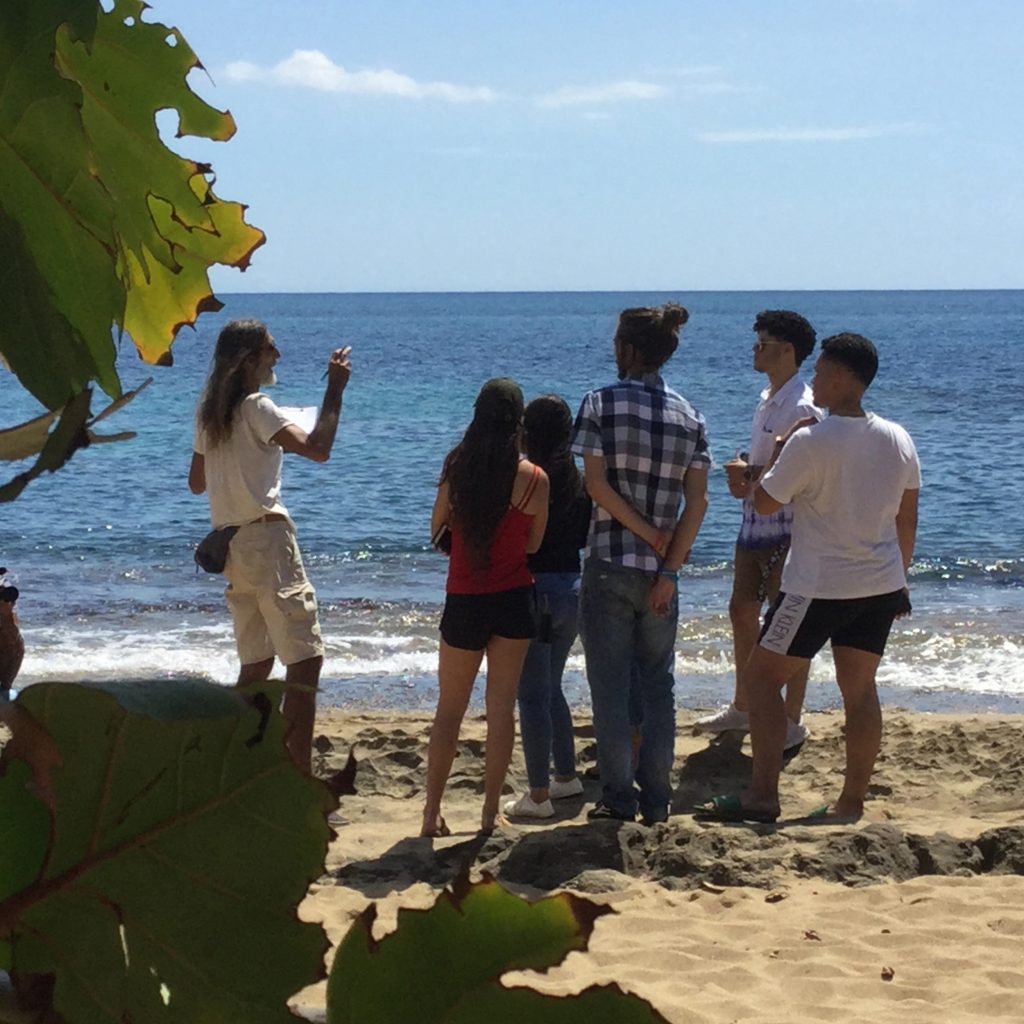
2019: UPRM students learning to test water quality at Steps Beach, Rincón.
Courtesy of Ricia Anne Chansky.
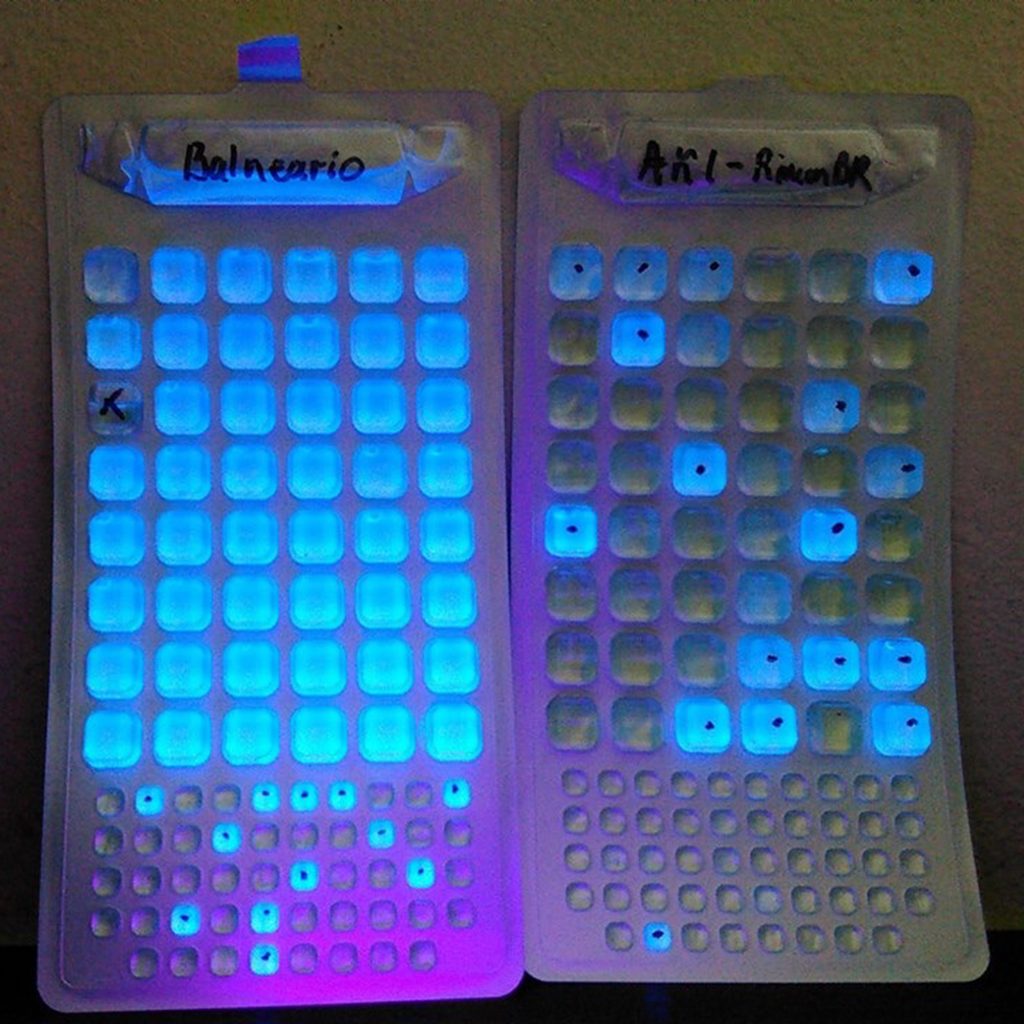
2019: Water quality test from the public beach of Rincón showing 25X the danger level, a Mega Red Alert.
Photograph courtesy of Steve Tamar, Fundación Surfrider Rincón.
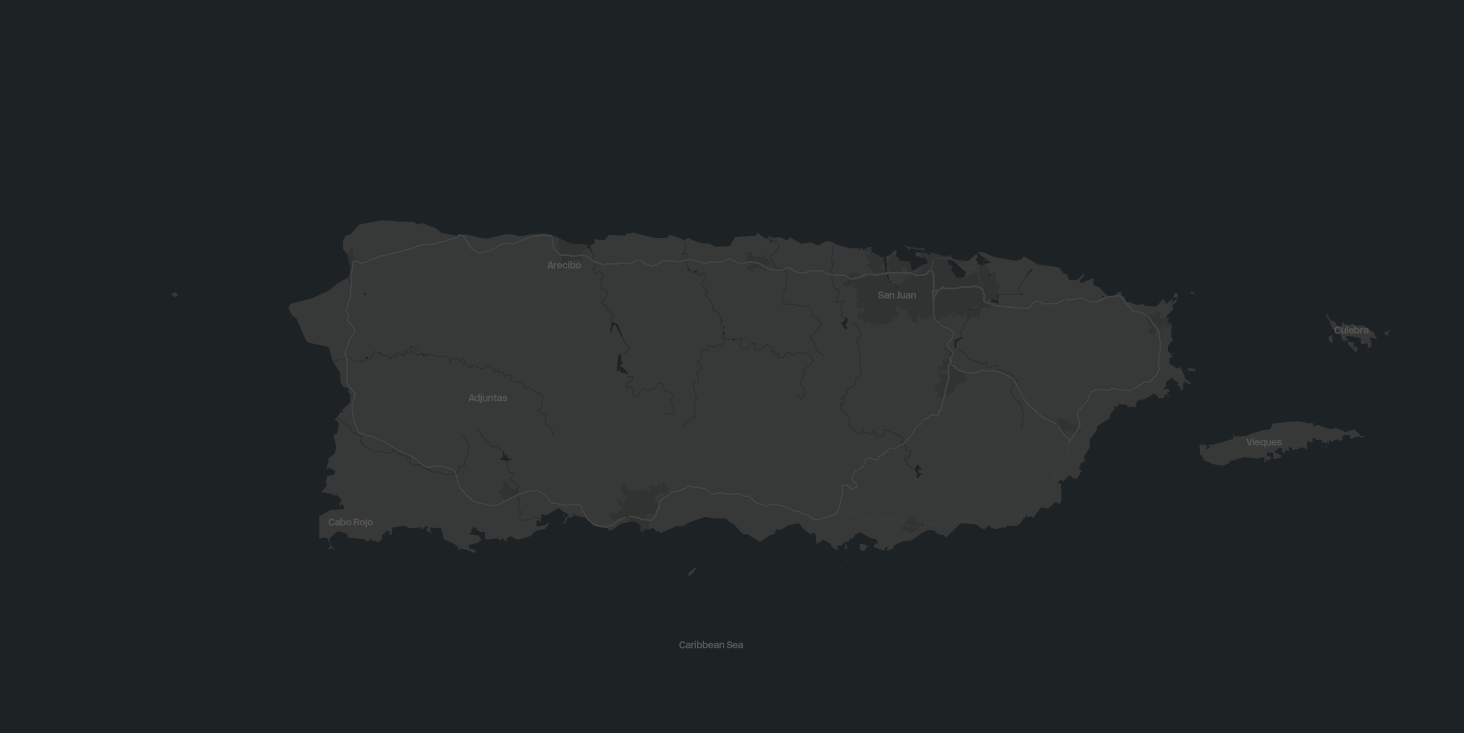
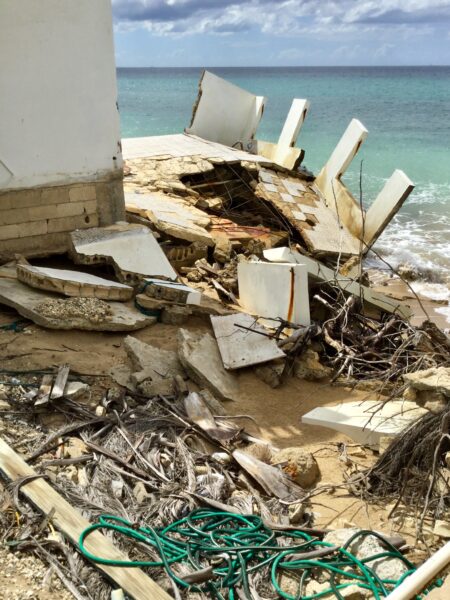
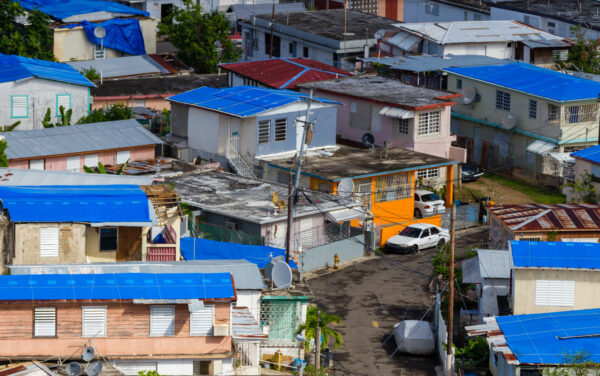
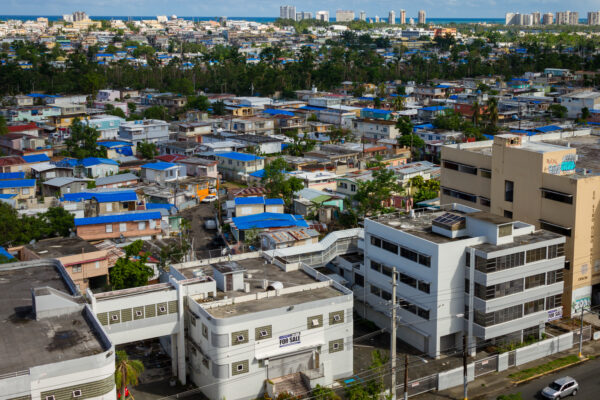
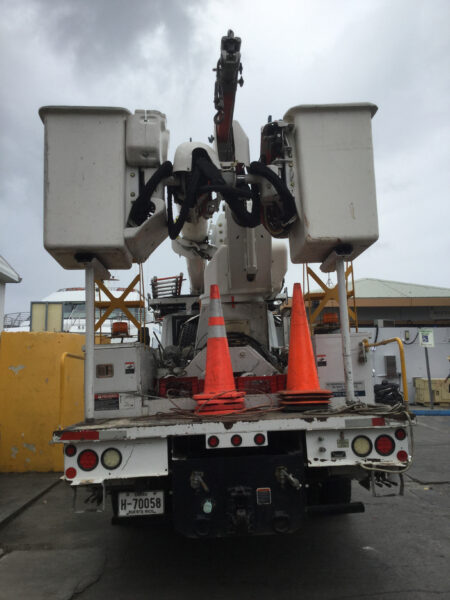
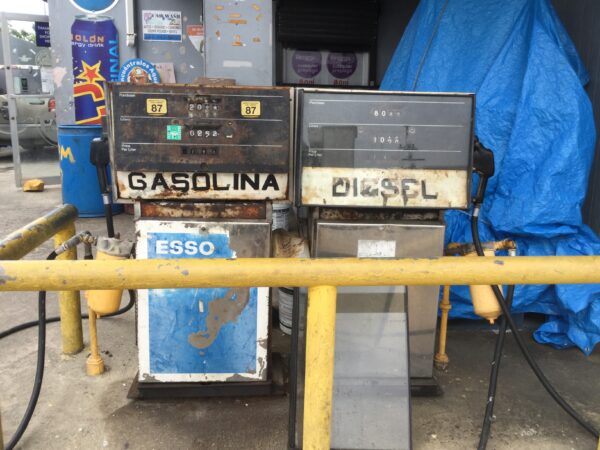
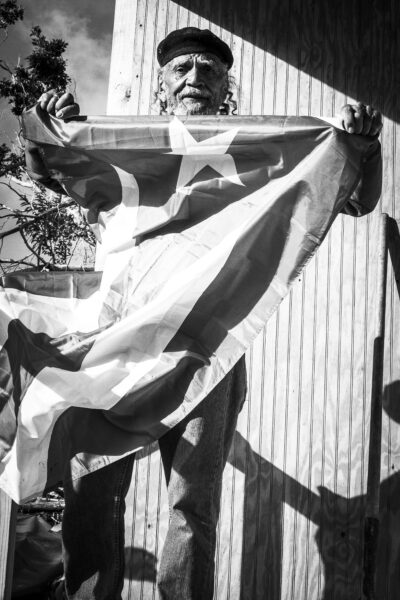
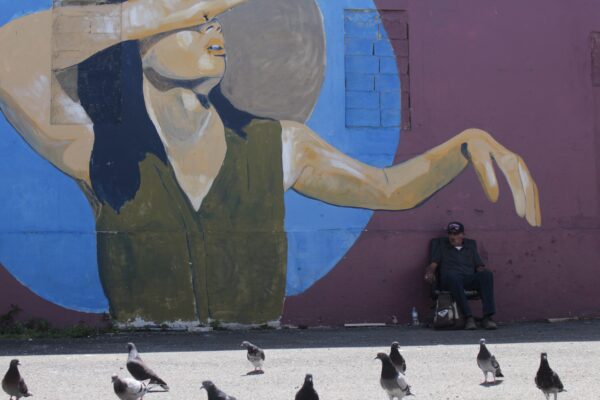
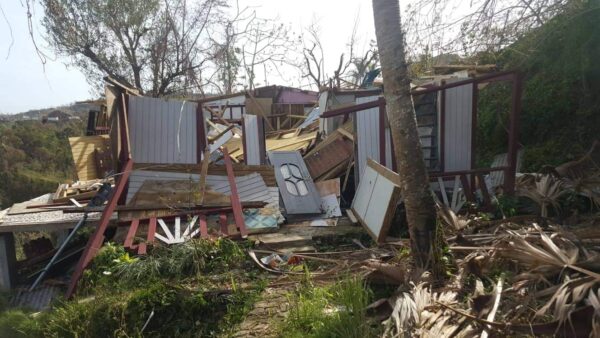
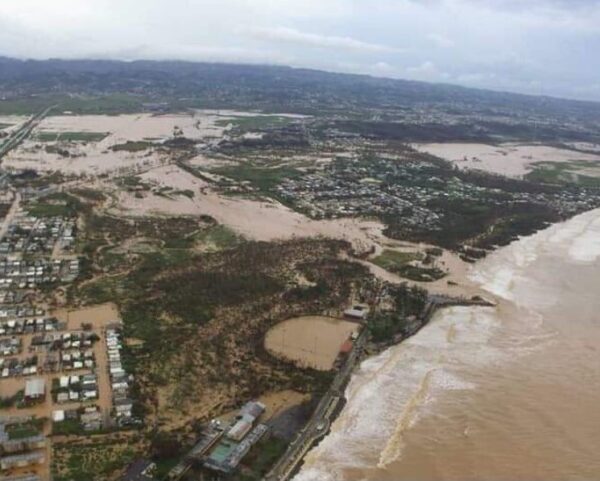
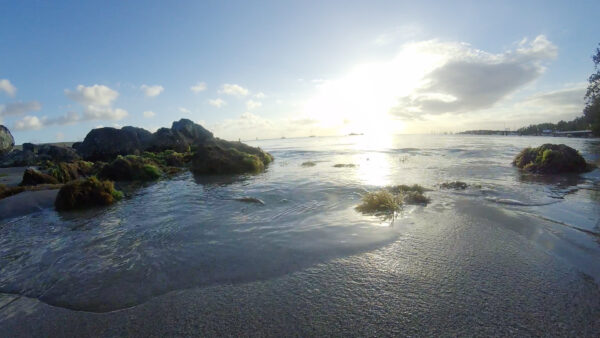
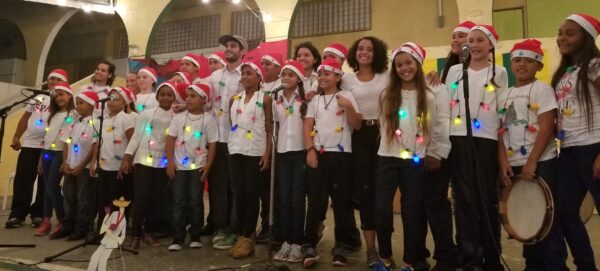
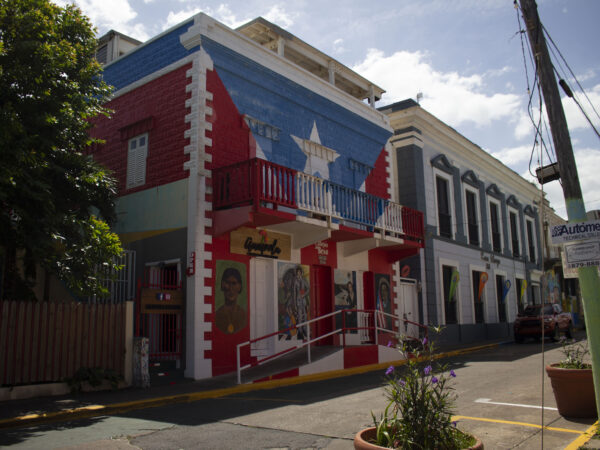
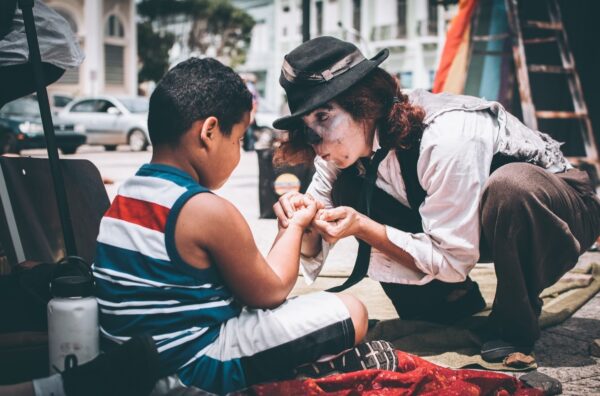
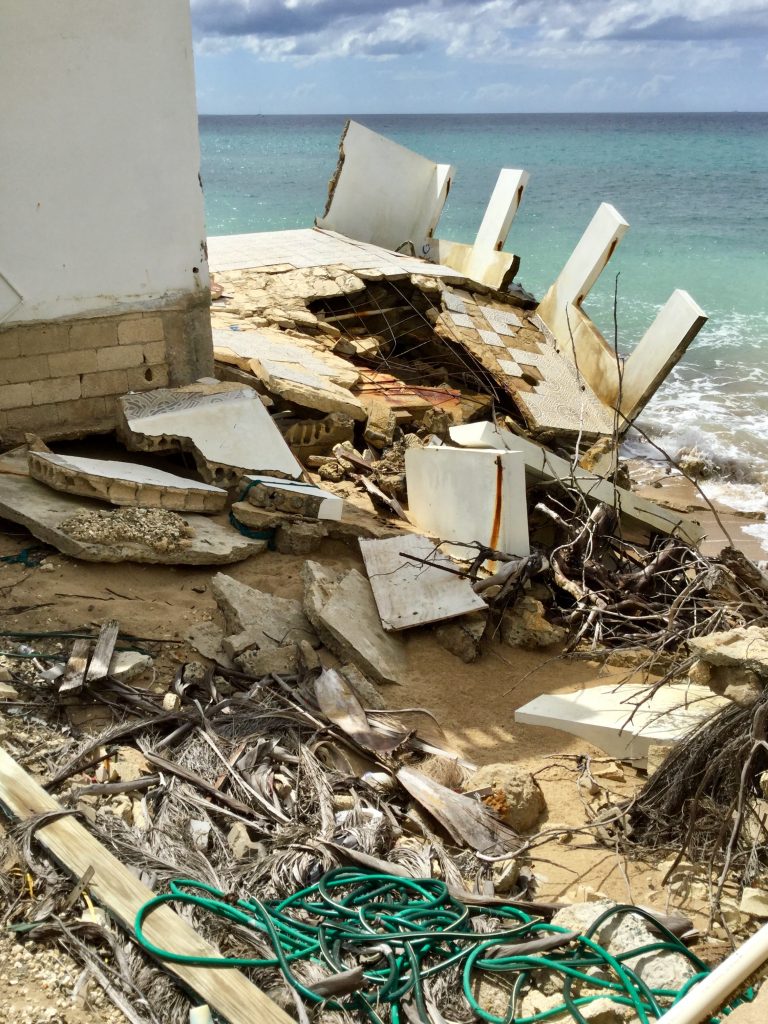
February 22, 2019: Destroyed home in Barrio Stella, Rincón.
Courtesy of Ricia Anne Chansky.
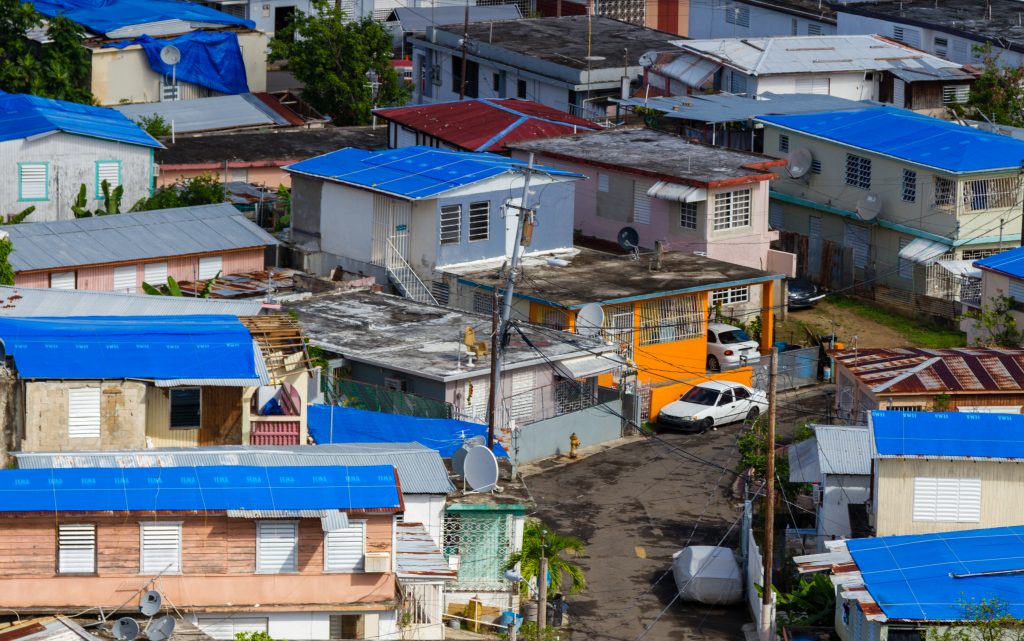
FEMA tarps in Hato Rey, Puerto Rico.
Courtesy of Eric Purcell.
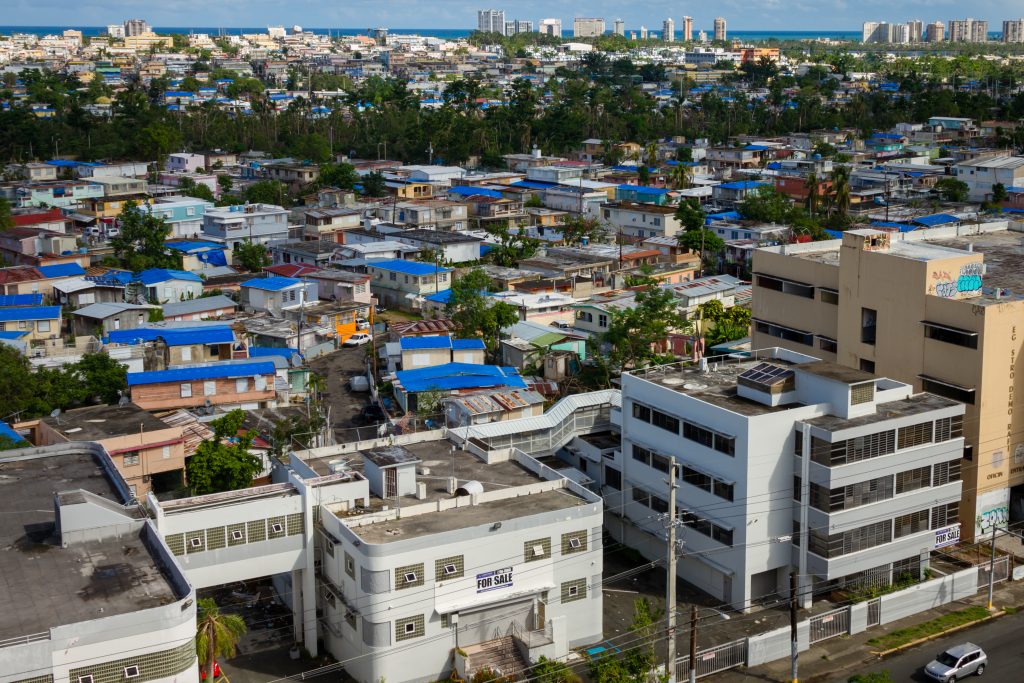
FEMA tarps in Hato Rey, Puerto Rico.
Courtesy of Eric Purcell.
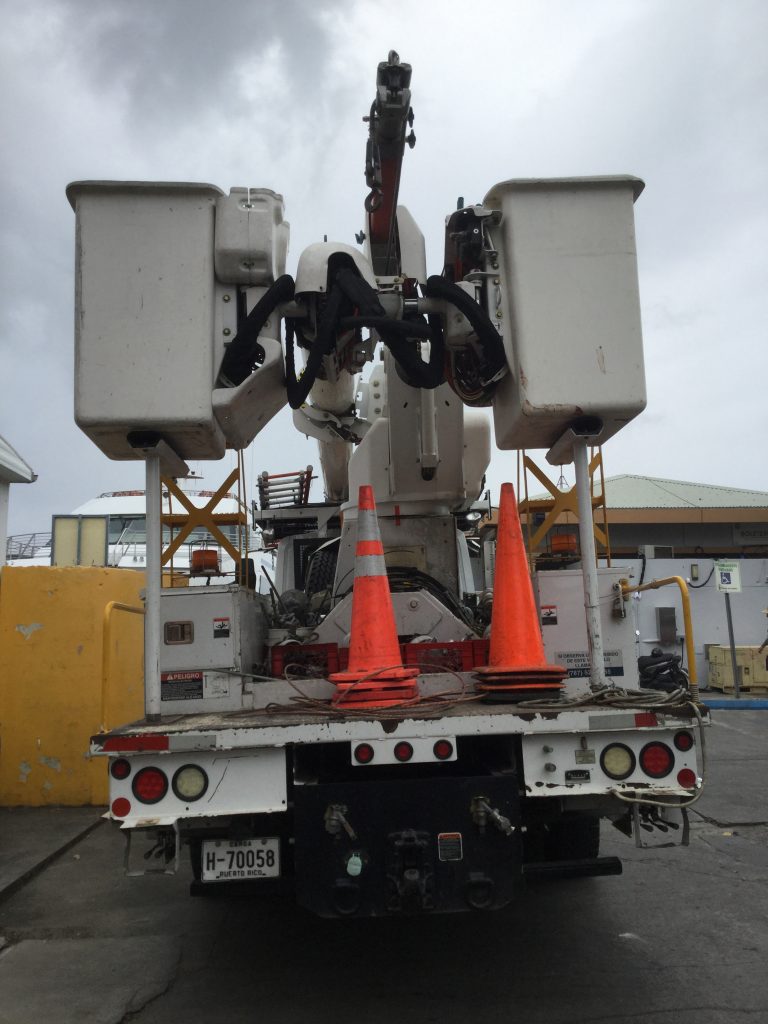
March 20, 2019: Power truck on Culebra on the day the last generator was unhooked.
Courtesy of Ricia Anne Chansky.
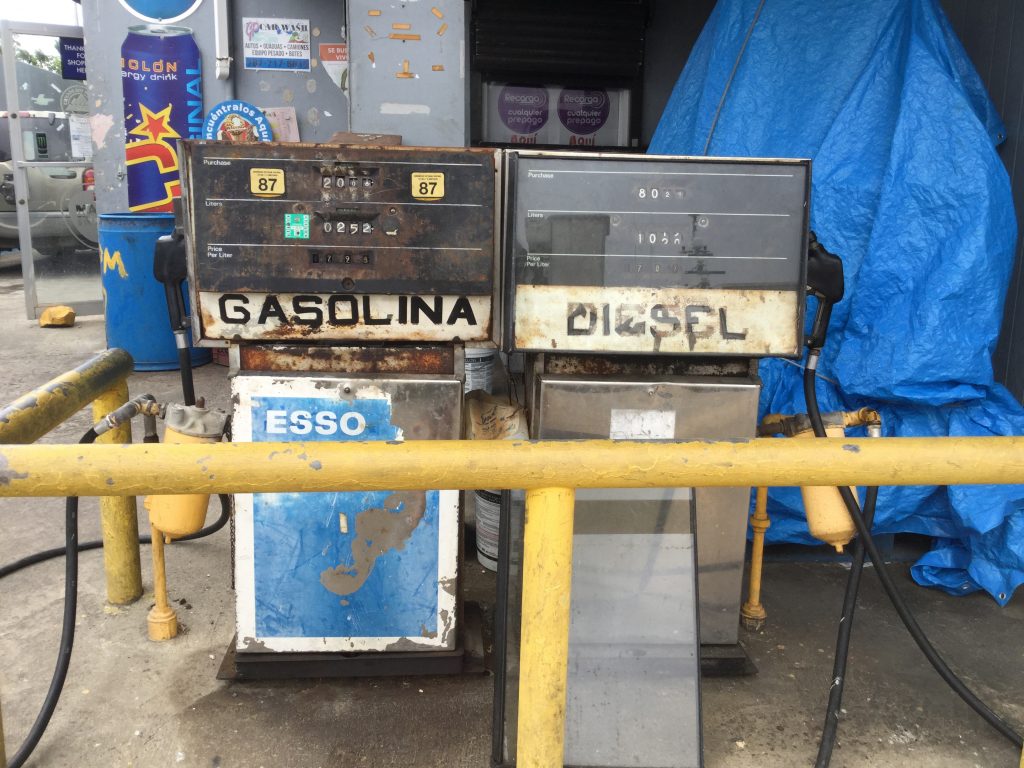
March 20, 2019: Gas station on Culebra.
Courtesy of Ricia Anne Chansky.
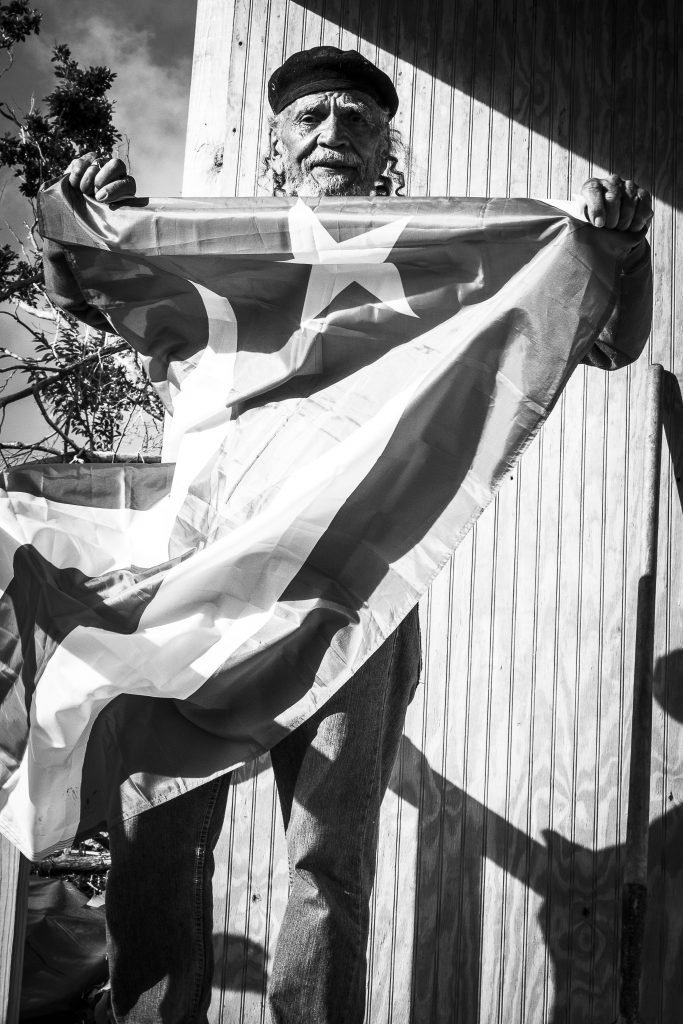
Three Kings’ Day: Miguel celebrates his new house, built in collaboration with TECHO, Villa Sin Miedo.
Courtesy of Hatuey.
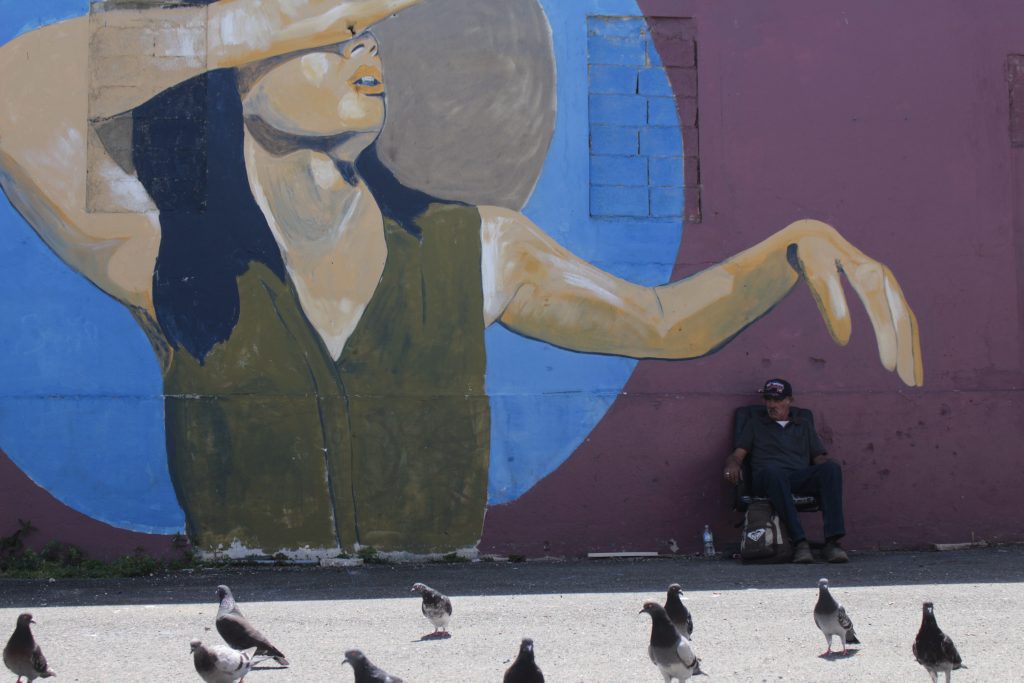
Mural in the Arecibo Plaza.
Courtesy of Kiara Rivera Santiago.
Oral Histories
By Edwin J. Santos Rodriguez (Electrical Engineering), Pierucci Aponte Andujar (English), Fabiola del Valle Sanchez (English), and Andrea Valdes Valderrama (English).
Radio Broadcasts
By Jonathan Acevedo (English), Janely Rentas (Microbiology), Issac Rodriguez Aponte (Software Engineering), and Kidanny J. Medina Droz (Microbiology).
Water Quality
By Kevin Lopez Matias (Biology), Astrid Zapata De Jesus (Microbiology), Juan M. Perez Gonzalez (Civil Engineering), Allyson Vargas Ortiz (Biology), and Andres Perez Colon (Economics).
Ethnomusicology
By Julisa Figueroa Echevarria (Plastic Arts), Grace Lucca Feliciano (Human Resources & Marketing), and Angelic Lucca Feliciano (Humanities).
Homelessness and Abandoned Spaces
By Bryan Ramos Romero (English), Kiara Rivera Santiago (English), Daniela Mulero Morales (Political Science), and Joe Centeno Reyes (English).
Children’s Literatures
By Adriana Montes Pacheco (Agribusiness), Sharon M. Nieves Ferrar (Physics), Francheska Morales Garcia (Theoretical Physics), and Yarelis Marcial Acevedo (English).
Photography
By Joelys Tardy Vargas (Industrial Microbiology), Kiara Velez Velez (Agronomy), Aixamar Ramos Acevedo (Agronomy), and Paola M. Rodriguez Garcia (English).
Our Point of View
Each of the students, faculty, and community partners involved in the “Mi María” project survived category 5 Hurricane María, which brought new disasters born of insufficient government relief efforts. This mass listening project—designed to empower students and community by counteracting the silencing of Puerto Ricans—demonstrates the value of stories in seeking climate justice while connecting classrooms to communities. Working with community partners allowed us to collect and compare grassroots responses to disaster to record innovative and replicable responses.
—University of Puerto Rico, Mayagüez
Fundación Surfrider Rincón is the Puerto Rican chapter of a global nonprofit that protects beaches, oceans, and waves. Their Blue Water Task Force educates, advocates for, and monitors ocean health. In the aftermath of Hurricane María, their attention turned to freshwater sources that potentially sickened those who drank from them. Under post-disaster conditions, the quality of already vulnerable coastal areas and freshwater sources is unreliable. The UPRM student collaboration with Surfrider helps us understand how to develop and mobilize citizen scientists in the wake of disaster.
—Fundación Surfrider Rincón